
The Group of Eight (G8) was an inter-governmental political forum from 1997 until 2014. It had formed from incorporating Russia into the Group of Seven, or G7, and returned to its previous name after Russia was expelled in 2014.

The 27th G8 summit was held in Genoa, Italy, on 20–22 July 2001 and is remembered as a highpoint of the worldwide anti-globalization movement as well as for human rights violations against demonstrators.

The Group of Seven (G7) is an intergovernmental political forum consisting of Canada, France, Germany, Italy, Japan, the United Kingdom and the United States; additionally, the European Union (EU) is a "non-enumerated member". It is organized around shared values of pluralism, liberal democracy, and representative government. As of 2020, G7 members are large IMF advanced economies and account for over half of global net wealth, 30 to 43 percent of global gross domestic product, and 10 percent of the world's population. Its members maintain mutually close political, economic, diplomatic, and military relations in global affairs.

Dissent! was the name taken for an international network of local groups, which came together to organise opposition to the G8 summit held in Gleneagles Hotel, Perthshire, Scotland in July 2005. Most groups shared an anti-capitalist orientation and anti-authoritarian organizing methods and the network declares itself to be open to anyone prepared to work within the Hallmarks of Peoples' Global Action, an international co-ordination of radical social movements and grassroots campaigns. Dissent acted as a networking tool and created infrastructure which was used by groups with methods of protest ranging from anti-border city tours and street parties to road blockades, graffiti and confrontations with the police.
Make Poverty History were organizations in a number of countries, which focused on issues relating to 8th Millennium Development Goal such as aid, trade and justice. They generally formed a coalition of aid and development agencies which worked together to raise awareness of global poverty and achieve policy change by governments. The movement has existed in Australia, Canada, Denmark, Finland, New Zealand, Nigeria, Norway, Romania, South Africa, Ireland, the United Arab Emirates, the United States of America, and the United Kingdom. The various national campaigns were part of the international Global Call to Action Against Poverty campaign.

Jubilee 2000 was an international coalition movement in over 40 countries that called for cancellation of third world debt by the year 2000. This movement coincided with the Great Jubilee, the celebration of the year 2000 in the Catholic Church. The campaign has been generally hailed as very successful. As planned, the Jubilee 2000 Coalition dissolved at the end of the millennium year but left a legacy of organisations around the world.

Live 8 was a string of benefit concerts that took place on 2 July 2005, in the G8 states and in South Africa. They were timed to precede the G8 conference and summit held at the Gleneagles Hotel in Auchterarder, Scotland, from 6–8 July 2005. Both events also coincided with the 20th anniversary of Live Aid. Run in support of the aims of the UK's Make Poverty History campaign and the Global Call to Action Against Poverty, ten simultaneous concerts were held on 2 July and one on 6 July. On 7 July, the G8 leaders pledged to double 2004 levels of aid to poor nations from US$25 billion to US$50 billion by 2010. Half of the money was to go to Africa. More than 1,000 musicians performed at the concerts, which were broadcast on 182 television networks and 2,000 radio networks.

The 31st G8 summit was held on 6–8 July 2005 at the Gleneagles Hotel in Auchterarder, Scotland and hosted by Prime Minister Tony Blair. The locations of previous G8 summits to have been hosted by the UK include: London ; and Birmingham (1998). It is the first G8 summit to be held in Scotland. A sixth UK summit was held in Lough Erne in 2013; and a seventh UK summit was held in Carbis Bay in 2021.
The 7 July 2005 London bombings were a series of suicide attacks carried out by homegrown terrorists on London's public transport network during the morning rush hour.
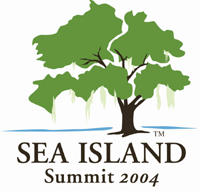
The 30th G8 summit was held in Sea Island, Georgia, United States, on June 8–10, 2004.

The 32nd G8 summit was held on 15–17 July 2006 in Saint Petersburg, Russia. The venue was the Constantine Palace, which is located in Strelna on the Gulf of Finland. This was the first time Russia served as host nation for a G8 summit; and the nation's status as a full member of the G8 was confirmed.
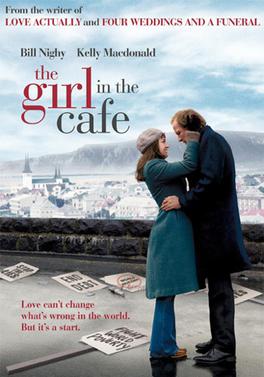
The Girl in the Café is a British made-for-television drama film directed by David Yates, written by Richard Curtis and produced by Hilary Bevan Jones. The film is produced by the independent production company Tightrope Pictures and was originally screened on BBC One in the United Kingdom on 25 June 2005. It was also shown in the United States on cable television station Home Box Office on the same day. Bill Nighy portrays the character of Lawrence, with Kelly Macdonald portraying Gina. Nighy and Macdonald had previously starred together in the 2003 BBC serial State of Play, which was also directed by Yates and produced by Bevan-Jones. The Girl in the Café's casting director is Fiona Weir who, at the time, was also the casting director for the Harry Potter films, the last four of which Yates directed.
Un Monde sans Pauvreté is the Québécois branch of the Canadian Section of Make Poverty History, a national coalition of organizations comprising an international campaign coalition called the Global Call to Action Against Poverty. Working together, these organizations aim to abolish extreme poverty worldwide.
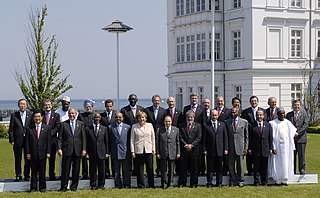
The 33rd G8 summit was held at Kempinski Grand Hotel, 6–8 June 2007. The summit took place in Heiligendamm in the Northern German state of Mecklenburg-Vorpommern on the Baltic Coast. The locations of previous G7 / G8 summits to have been hosted by Germany include Bonn, Munich (1992), and Cologne (1999).
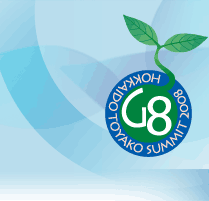
The 34th G8 summit was held in the town of Tōyako, Hokkaido, Japan, on July 7–9, 2008. The locations of previous summits hosted by Japan include Tokyo and Nago, Okinawa (2000). The G8 summit has evolved beyond being a gathering of world political leaders to become an occasion for a wide variety of non-governmental organizations, activists and civic groups to congregate and discuss a multitude of issues.

The 35th G8 summit was held in L'Aquila, Abruzzo, Italy, on 8–10 July 2009. It was originally to be held at Sardinian seaside city of La Maddalena, but it was moved to L'Aquila as part of an attempt to redistribute disaster funds after the devastating earthquake that April.

The 36th G8 summit was held in Muskoka, Ontario, Canada, on June 25–26, 2010. In this year's meeting, the G8 leaders agreed in reaffirming the group's essential and continuing role in international affairs and "assertions of new-found relevance." The form and function of the G8 was reevaluated as the G20 summits evolved into the premier forum for discussing, planning and monitoring international economic cooperation.
The Summit of World Religious Leaders is an annual meeting of religious leaders. Although there are other Interfaith World Summits where religious leaders from a diverse array of faith traditions attend, these particular meetings are unique in that they deliver collaborative statements to the G8 political leaders about the mutual responsibility faith groups and political leaders share for improving the living conditions of the most vulnerable people and species in the world. These Summits have now met for one complete round of G8 meetings. The first meeting to deliver a statement to the G8 was held in the United Kingdom and was ecumenical. It became interfaith the following year when Russia hosted the event. The statements can be viewed at the G8 Research Group website.
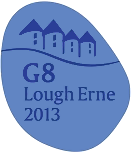
The 39th G8 summit was held on 17–18 June 2013, at the Lough Erne Resort, a five-star hotel and golf resort on the shore of Lough Erne in County Fermanagh, Northern Ireland. It was the sixth G8 summit to be held in the United Kingdom and the first to be held in Northern Ireland. The earlier G8 summits hosted by the United Kingdom were held in London, Birmingham (1998), and Gleneagles (2005).

The 40th G7 summit was held 4–5 June, 2014 in Brussels, Belgium. It was originally scheduled to be held as the “40th G8 summit” and be hosted by Russia in the Black Sea resort of Sochi. However, the other seven countries decided on 24 March that the summit would be instead held without Russia in Brussels.















